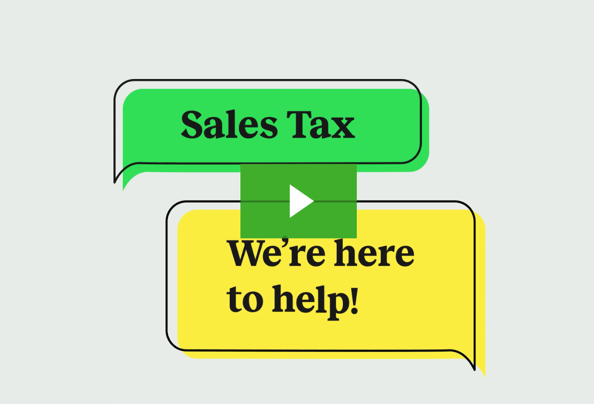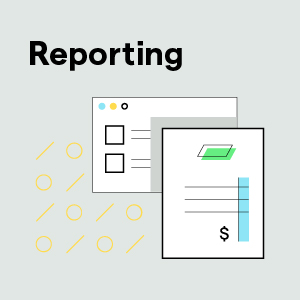Florida’s Marketplace Facilitator Sales Tax Law, Explained
by May 17, 2021
Good news for marketplace sellers — after nearly three years of holding out, the state of Florida now requires marketplaces to collect sales tax on behalf of sellers on online marketplaces like Amazon or Walmart.
This means that if you sell on a platform like Amazon, then Amazon will collect sales tax from your Florida buyers on your behalf, and remit it to the state.
But as usual, things can get a little complicated when it comes to e-commerce sales tax.
This post will explain what online sellers need to know about the Florida marketplace facilitator law, and answer your frequently asked questions.
Overview of the Florida Marketplace Facilitator Law
Florida’s marketplace facilitator law states that marketplace facilitators who make or facilitate more than $100,000 in sales on behalf of 3rd party sellers to Florida customers in the previous calendar year are required to collect Florida sales tax.
Quick Facts about the Florida Marketplace Facilitator Law
- Effective date: July 1, 2021
- Threshold: $100,000 in the previous calendar year
- State law information: Read the full text of the Florida law here
Frequently asked Questions about Marketplace Facilitator Laws
What exactly is a marketplace facilitator in Florida?
Florida law defines marketplace facilitators as:
“every person is exercising a taxable privilege who engages in the business of selling tangible personal property at retail in this state, including the business of making or facilitating remote mail order sales; or who rents or furnishes any of the things or services taxable under this chapter;, or who stores for use or consumption in this state any item or article of tangible personal property as defined herein and who leases or rents such property within the state.
Online sales platforms like Amazon and Walmart are considered marketplace facilitators under Florida law.
A software like Shopify or Magento that allows online sellers to build and manage their own stores would not be considered a marketplace facilitator.
Does this mean I can stop collecting Florida sales tax?
It depends. Every business’s sales tax situation is unique to that business.
Let’s look at a couple of common scenarios for businesses who have sales tax nexus in Florida.
Example #1: You only make sales on online marketplaces.
In this example, you only sell on Amazon and eBay. Because Amazon and eBay are both now collecting sales tax from buyers on your behalf, you are not required to collect sales tax from your buyers. (However, as a seller with nexus in the state, you will most likely still be required to file periodic sales tax returns. See “Does this mean I can cancel my Florida sales tax permit?” below.)
Example #2: You sell on online marketplaces and your own online store and/or brick and mortar store.
In this case, you’d still be required to collect sales tax from buyers who purchase from you through your own online store (for example, via your BigCommerce or SalesForce Commerce Cloud store). And you would still be required to collect sales tax from your brick and mortar customers.
Marketplace facilitator laws only cover marketplaces. The state still requires that merchants collect sales tax from buyers via sales channels where the marketplace facilitator laws do not apply.
Does this mean I can cancel my Florida sales tax permit?
This news is new, and therefore it is not yet clear if marketplace-only sellers can cancel their Florida sales tax permits.
We recommend contacting the Florida Department of Revenue or consulting with a vetted sales tax expert before cancelling your Florida sales tax registration.
Also, it’s important to assess your business before making a decision about cancelling sales tax permits. Are you in a growth stage? Do you plan to expand and think you may have Florida sales tax collection requirements (such as physical presence or economic nexus) in the future? Then you may want to hang on to your Florida sales tax permit rather than cancelling it and going through the administrative hassle of registering again in the future. This business decision is up to you.
Do I still need to file a Florida sales tax return?
If you are registered to collect sales tax in Florida (i.e. you have an active Florida sales tax permit) then the state still requires that you file sales tax returns.
If you only make sales via marketplaces, and all of your marketplaces collect sales tax from buyers on your behalf, then you may only be required to file a “zero return.” (This is a return showing that you do not have any sales tax to remit to the state.)
If you no longer have any sales tax to remit to the state of Florida, we recommend checking directly with the state or a vetted sales tax expert to determine if you can cancel your sales tax registration.
Be cautious here. If you are registered for a sales tax permit and do not file, the state can assess penalties even though you don’t have any sales tax to remit! We have, unfortunately, talked to too many sellers who have found this out the hard way when a tax penalty bill arrives.
What do I do with any Florida sales tax I have already collected?
If you have already collected Florida sales tax from buyers, it is vital that you remit that amount to the state. The only way to get in serious criminal trouble in sales tax is to collect sales tax from buyers on the state’s behalf but keep it in your own pocket.
Example:
Let’s say you sell on Amazon and Florida requires you to file and remit sales tax quarterly. Though Amazon began collecting sales tax on your behalf on July 1, 2021, if you have any sales tax in your bank account that you collected from Q3 2021, you will still need to remit that to the Florida Department of Revenue or face a penalty.
Does TaxJar handle this for me?
Yes.
TaxJar AutoFile Handles Florida Sales Tax Automatically
TaxJar AutoFile automatically compiles your sales tax data the way the state of Florida wants it filed. For example, many states, Florida included, want sellers to break down their sales tax collected interstate (sales originating in Florida sent to another state) and intrastate (sales made from Florida to Florida.)
If a marketplace has collected sales tax on your behalf, TaxJar reports that directly to the state so that the state is aware you have met your sales tax obligations.
If you currently AutoFile your Florida sales tax returns, you don’t need to do a thing. It’s handled!
TaxJar Reports Give You all the Info You need to File Manually
If you prefer to file manually, your TaxJar Reports also reflect what the Florida Department of Revenue wants to see on your tax return.
Also don’t worry that you will double pay. TaxJar accounts for sales tax collected on your behalf, and only shows you the amount you owe to the state out of your pocket.
Further reading on Florida sales tax and marketplace facilitator laws:
- TaxJar’s Marketplace Facilitator FAQ
- State by State: Marketplace Facilitator Laws Explained
- Florida Sales Tax Guide for Businesses







